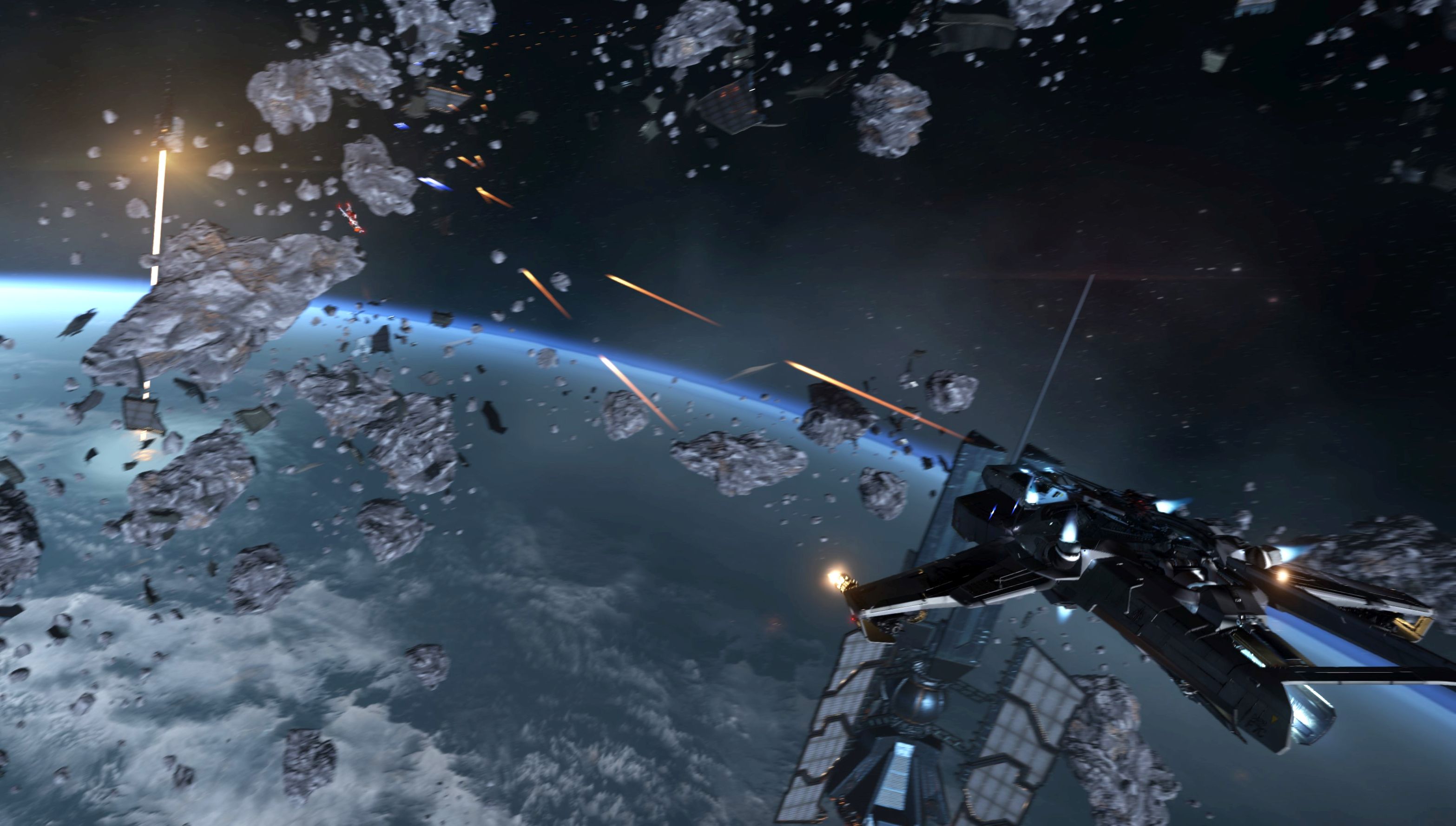Chris Roberts speaks out on Star Citizen complaints

In his latest Letter From the Chairman missive, Cloud Imperium Games founder Chris Roberts acknowledged that development of Star Citizen has dragged on a lot longer than initially expected. But that, he said, is a consequence of the studio's embrace of "open development" that gives supporters access to the game at a much earlier stage in the process than is usual, as well as its vastly expanded scope, which goes far beyond what he originally believed was possible.
The update covers a number of topics, including the recent delay of the Star Marine FPS module, which he said was mischaracterized by many sites as "being put on indefinite hold or canceled." He also addressed reports about the loss of high-profile staff members, including Executive Producer Alex Mayberry, which he said is perfectly normal for a company as big as CIG.
"We are a very large company now, dedicated entirely to making Star Citizen and Squadron 42. We have four development studios: Los Angeles, Austin, Wilmslow, UK and Frankfurt, Germany. Our internal headcount has gone from five at the end of 2012 to 59 at the end of 2013 to 183 at the end of 2014 and to 255 now," he wrote. "The turnover at CIG is no more or less than it was at Origin, EA, Digital Anvil or Microsoft when I was making games there. The difference is that since we conduct our development in an open manner people get the opportunity to know some of the individuals working on the game, in a way you wouldn’t with a normal publisher, so a departure becomes more noticeable."
And of course he touched on complaints, headed by 3000AD founder Derek Smart, about the state of the game and its internal crowdfunding campaign. Smart, you'll recall, was given an unrequested refund on his Star Citizen Kickstarter pledge after, among other things, calling for an FTC investigation into Cloud Imperium on his blog. Roberts acknowledged that the launch schedule envisioned during the Kickstarter is completely out the window, but said the studio is taking pains to keep supporters informed and engaged.
"This is why we decided on multiple modules: the Hangar, so you could first see your ships and walk around them in the manner you would in the final game, then Arena Commander, to allow people to get a taste and give feedback on the basic dogfight and flight mechanics. Star Marine, which will be available shortly, is the module for backers to experience and give their feedback on the First Person Shooting component of the game," Roberts wrote. "Not long after that we will be releasing the next level of Arena Commander, allowing players with bigger ships to fly them with friends, on maps that are closer in size to the huge ones you’ll have in the final game."
"Anyone with knowledge about game development can assess our spending based on the information we share every month," he added. "It speaks for itself that from the outset our TOS provides for an accounting to be published if we ever had to stop development before delivering. With the progress and the funds we’ve raised this is no longer an issue, but quite obviously we wouldn’t have provided for this clause, if we weren’t using your funds very carefully for the development of Star Citizen."
Smart, however, is having none of it. In a response on Twitlonger, he wrote that anyone who believes Star Citizen will come out as advertised "is delusional," and said its business model is unsustainable.
Keep up to date with the most important stories and the best deals, as picked by the PC Gamer team.
"From an economics standpoint, what people fail to realize is that most games don't sell 927K (their approx pledge count) copies. So this $85m, at this point, are pre-sales because people expect something in return for their money. Thus, any money needed to continue ops after that money runs out within this year, has to come from somewhere," he wrote. "F2P games work on the premise that most of the whales (those buying stuff), pay for those who don't buy anything. The ratio is massive, and even if the numbers go from 927K to 1m, it's not enough for long term financial success, even if 70% of those are whales who keep buying stuff. And with 255 (as of this July statement) employees, plus an undisclosed number of contractors, that monthly burn rate is killer."
In spite of the rhetoric, the situation seems to have stabilized: Cloud Imperium is making promises, and Derek Smart doesn't believe them. If Smart is correct and a crash is coming, then it almost certainly will, as he predicted, "be unprecedented and have long term ramifications for the industry, as well as videogame crowd-funding in general." On the other hand, if Roberts and company pull it off, then Star Citizen may well be "the dream game that all of us have wanted to build all our lives."

Andy has been gaming on PCs from the very beginning, starting as a youngster with text adventures and primitive action games on a cassette-based TRS80. From there he graduated to the glory days of Sierra Online adventures and Microprose sims, ran a local BBS, learned how to build PCs, and developed a longstanding love of RPGs, immersive sims, and shooters. He began writing videogame news in 2007 for The Escapist and somehow managed to avoid getting fired until 2014, when he joined the storied ranks of PC Gamer. He covers all aspects of the industry, from new game announcements and patch notes to legal disputes, Twitch beefs, esports, and Henry Cavill. Lots of Henry Cavill.

